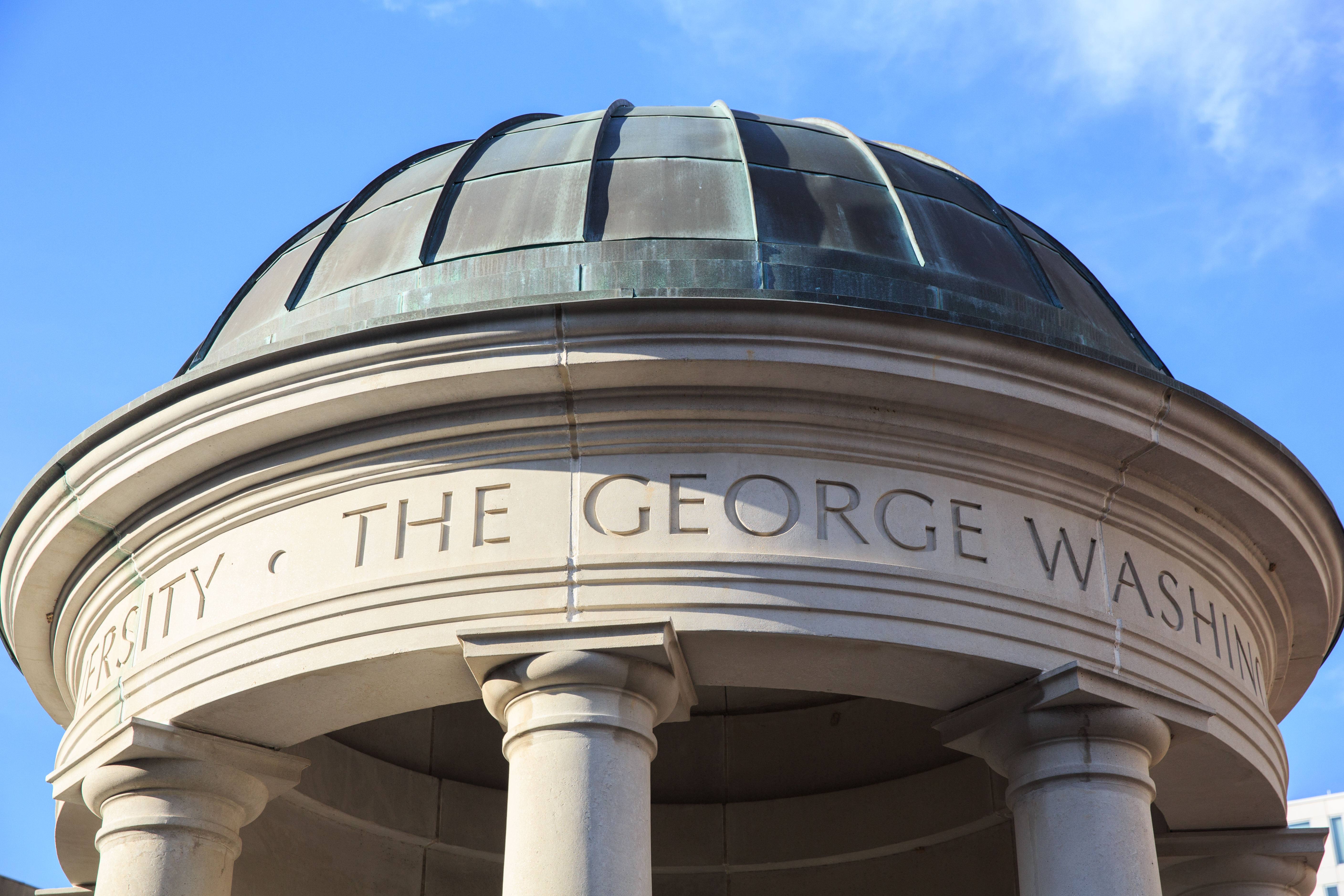George Washington University President Mark S. Wrighton delivered his first president’s report to the Board of Trustees at its February meeting Friday, thanking the university community for its warm welcome during his first month as president.
Among the highlights Wrighton cited were participating in GW’s Black Heritage Celebration, the ongoing university-wide conversation about shared governance, and the appointment of Chris Cahill and Nathan Smith to the 2021 class of American Association for the Advancement of Science (AAAS) Fellows.
“It’s really rewarding to be here at a place that is making such great progress,” he said. “We have a distinguished key faculty leadership that is really making important contributions in their areas.”
Wrighton also commended the GW Medical Advisory Team for the university’s continued monitoring of and response to the COVID-19 pandemic. “The infrastructure that has been developed to be able to operate safely in this environment has been truly impressive,” he said.
“My aim is to assist this university in getting off to a great start for its third century,” Wrighton said. “I hope that when we look back on 2022 that we see it as an inflection point, a steepening of the rate of progress of this university.”
The board also heard reports from Faculty Senate Executive Committee Chair Arthur Wilson, Student Association (SA) President Brandon Hill and GW Alumni Association (GWAA) President Christine Brown-Quinn.
Wilson reported that the Faculty Senate has heard presentations on several topics of major import since the last board meeting, including rebounding enrollment, the Strategic Campus and Facilities Master Plan and GW’s favorable budget report. At present, he said, the shared governance conversation among faculty, administration and trustees is a top priority for the Faculty Senate.
“It’s clear that there are a variety of different perspectives on how we might proceed and how the university can best function,” Wilson said. “But we are having those discussions, and I am optimistic that we will end up in a good place as a result of that.”
Hill, the SA president, emphasized cooperation among students, trustees, faculty and administrators and reported some “enormous wins” this year, including the institution of a two-day fall break to rejuvenate students’ mental health and the implementation of the WMATA U-Pass program. Hill said that cooperation has led to powerful and popular initiatives like fossil-fuel divestment and is a good foundation on which to build as continued action on climate change remains a major student priority.
“GW’s commitment to being proactive climate leaders in higher education offers great opportunities as we enter our third century as an institution,” he said. “Having met with President Wrighton a few times to discuss goals and ambitions for the next 18 months, it is clear that we are aligned in listening, taking action and doing what is best [for] students at our university.”
Brown-Quinn, the GWAA president, reported that alumni engagement is high, and GWAA is two thirds of the way to its giving attainment and donor count goals for the year, ahead of those numbers in 2021. She said the Open Doors initiative has been a particularly powerful motivator for donors, with the GWAA raising $1.8 million on its $2.6 million annual giving scholarship goal so far.
“We are more powerful together, and with involvement of our students and faculty, staff, alumni, family and friends of GW, I’m sure we’ll surpass our set goal,” she said.
The meeting concluded with brief updates from several board committees and task forces. These included co-chairs Christine Barth and Ave Tucker of the Committee on Strategic Planning and Enrollment, who reported that retention and enrollment are strong. While expected shortfalls in international enrollment continue due to the pandemic, GW has continued to attract enough qualified students to make up much of the deficiency.
Trustee Amr ElSawy, M.S.E.E. ’81, co-chair of the Shared Governance Task Force, encouraged the trustees, administrators and faculty to complete the survey that was recently distributed to solicit feedback on shared governance. The survey closes on Feb. 17.



